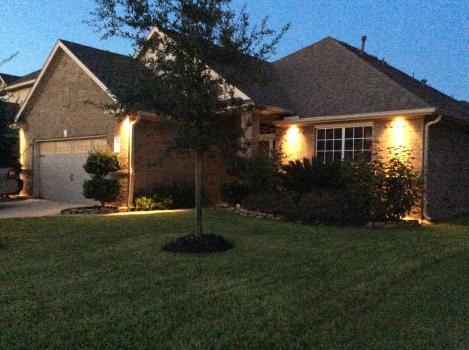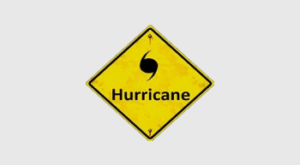
Generators can make power outage problems a thing of the past for savvy homeowners. When your power is taken out by a storm or any other event, a generator will kick in to provide you with electricity so you can stay comfortable and avoid the inconvenience of waiting for the electric company to restore power. People often buy generators when they hear a big storm is on its way, forcing them to make an important decision in a short time frame while generators are being bought up quickly. If you want to be able to rest easy when the next big storm is forecasted, use this buying guide to choose the best generator for your needs, ahead of the crowds.
Factors to Consider When Buying a Generator
When it comes to choosing a generator, it’s important to consider all the factors. Choosing one that is too powerful, not powerful enough, or entirely wrong for your needs will leave you with a headache at best, and with no power when you need it at worst.
Always consider the following factors:
- Type: Portable vs. whole-home?
- Fuel Source: Gasoline, diesel, natural gas, or propane?
- Size: How much power do you need?
Read on to learn more about each of these important considerations!
Portable Generator vs. Whole-Home Generator
Homeowners have two options when shopping for generators: portable or whole-home:
- Portable generators – Portable generators are – you guessed it – portable. In the event of an outage, this type of generator needs to be taken out of storage, connected to your electrical panel, and manually turned on. Most portable generators run on gasoline and use quite a lot of it to do their job – they may burn through 12–20 gallons per day. They can’t produce as much power as whole-home generators, making it difficult to run multiple large appliances while the main power is out. The main benefit to this type of generator is affordability; you can typically find one for as low as $400, and you don’t need to pay a professional to install it.
- Whole-home generators – Also called standby or stationary generators, these reliable backups are permanently installed in your home by a professional contractor. When the main power goes off, they will automatically kick on to restore your power within seconds. They are designed to power your entire house for an extended period of time. Because they use propane or natural gas, they can run for days without refueling. The only real downside to whole-home generators is the price tag; they can easily be 5-10 times as expensive as portable generators and will need to be installed by a professional. However, they provide much more security in the event of a power outage.
Generator Fuel Sources: Gasoline, Diesel, Natural Gas, or Propane
Generators are built to run on one of four fuel sources. Each one has advantages and disadvantages, so it’s important to consider your specific situation when deciding which type of generator to buy:
- Gasoline – Gasoline generators are among the least expensive, and gas is an easily obtained fuel in most cases. However, it is less efficient than other fuel types, meaning you’ll need to store a lot of it to be prepared for a lengthy outage. Given gasoline’s short shelf life and the danger of storing large quantities, it might not be a good choice if your chances of needing your generator are low.
- Diesel – Diesel generators require less upkeep than other types. Diesel is a more efficient fuel source than gasoline, meaning you’ll get more runtime for the same amount of fuel. It also has a longer shelf life and is less dangerous to store than gasoline, making it a good option for homeowners who don’t anticipate having to use their generators often. Unfortunately, diesel is a major pollutant and produces significantly more harmful emissions that other fuel sources.
- Natural Gas – Natural gas is a very clean, inexpensive fuel. To use this efficient fuel source, you’ll need to hook your generator up to a gas line. While a little inconvenient at first, this will ensure that your generator has an unlimited fuel source as long as the utility company keeps providing natural gas. However, in the event of an earthquake or other serious disaster, the natural gas supply may be interrupted.
- Propane – Although clean burning, propane is the least efficient fuel choice for generators. However, it does not degrade in storage, making it an attractive option for homeowners who anticipate only rare power outages. While it is less expensive than gasoline or diesel, its low efficiency makes propane generators more expensive to run than all other types.
Generator Sizes
When you wonder “What size generator do I need?” what you really want to say is “How many watts do I need?” Generators are sized based on their electrical output, which is measured in watts. The smallest generators, such as those used for camping, produce around 800-1000 watts. Large industrial generators can produce up to 500,000 watts. Portable generators for home use generally go up to 7,500 watts, although some high-end models offer up to 17,500. Standby generators can produce up to 22,000 watts.
How Much Power Do I Need?
This is where generator sizing gets tricky! How much power you need depends on your home, your appliances, and the things you want to power during a power outage. If you choose a generator that is too small, you can overload it. This can damage both the generator and your appliances. If you choose a generator that is too big, you’ll end up paying unnecessary costs to purchase and fuel it.
The best way to know how much power you need is to add up the wattage requirements of all your appliances. It’s important to base this calculation on your appliances’ “starting wattage.” For example, a refrigerator may need around 2900 watts to start its motor, then 700 to keep running. To run your refrigerator, you need at least 2900 watts, since it won’t run if its motor can’t start. Most generator manufacturers offer generator sizing charts that list the average wattage requirements of all common home appliances. You can decide which things you would like to power – just the essentials, such as your refrigerator and AC, or every electrical appliance in your home. Based on this calculation, you can choose the appropriately sized generator for your needs.
Tips for Using a Generator Safely
Generators are extremely useful, but improper use can result in tragedy. Every year, generator misuse results in deaths from carbon monoxide poisoning, as well as injuries and burns. Follow these tips for safe generator use:
- Place your generator far from your home – Generators give off carbon monoxide, so never place your generator in a garage, crawl space, or other enclosed space. Keep it at least 20 feet from your home.
- Refuel safely – Turn off your generator and let it cool down before adding more fuel.
- Store fuel properly – Store your gasoline, diesel, or propane in approved containers and in cool, well-ventilated areas.
- Use a transfer switch – For portable generators, a transfer switch connects your generator to your circuit panel. This helps you avoid relying on extension cords and can also prevent overload by displaying wattage readings.
- Don’t back-feed your house – Back-feeding refers to the practice of powering your home’s electrical system by plugging a generator directly into a wall outlet. This dangerous practice bypasses your home’s built-in electrical safety features, meaning you could fry your appliances or start an electrical fire. It can also electrocute utility workers or neighbors who are on the same transformer.
Be Ready for the Next Power Outage in Houston, TX
When chosen appropriately for your specific needs, properly sized and safely used generators can provide much-needed power through the longest outages. By making an informed choice, you can keep your power on while keeping your family safe.
The best way to ensure that you’re ready for a power outage is to consult a reliable electrician for generator installation and repair. Do you need generator help in Houston, TX? At Aaron’s Electrical Service, we install standby generators in Houston homes and offer transfer switches and interlock kits for portable generators in Houston. We also repair generators, so give us a call if your generator is experiencing issues!
Contact us online or call us at (469) 802-0231 to request a free estimate for generator services in Houston, TX.




